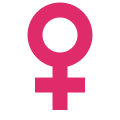This page's infobox may require expansion, verification, or otherwise need cleanup. |
 Native Fijian women, 1935. | |
| Gender Inequality Index [1] | |
|---|---|
| Value | 0.318 (2021) |
| Rank | 77th out of 191 |
| Global Gender Gap Index [2] | |
| Value | 0.676 (2022) |
| Rank | 106th out of 146 |
| Part of a series on |
| Women in society |
|---|
 |
Women in Fiji live in or are from the Republic of Fiji. On March 8, 2007, The Fiji Times ONLINE described Fijian women as playing an important role in the fields of economic and social development in Fijian society. The women of the Republic of Fiji are the "driving force" in health service as nurses and medical doctors. They are also key players and managers in the tourism and entertainment industries, as well as teachers in the field of education. [3]
Contents
According Vilimaina Rakaseta "the presence of very young children and larger family sizes contribute to the low level of labour force participation of Fijian and Indian women in Fiji." [4] By culture and tradition, a woman in Fiji lives in a paternalistic and patriarchal society wherein she has a secondary role at home performing household chores that include cooking meals and cleaning the house. As community and village members women are treated as subservient to men. [5]